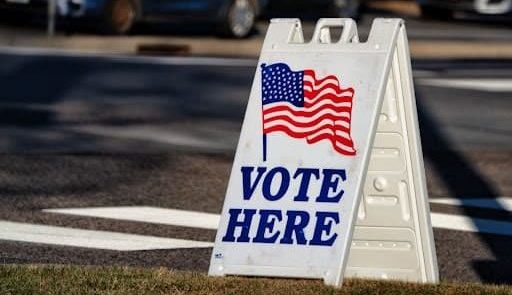Mayoral candidates gathered on April 5 for a virtual forum hosted by local nonprofit Miriam’s Kitchen to discuss homelessness in the District.
Three out of five candidates for D.C. mayor attended the forum: Robert White, James Butler and Andre Davis. Mayor Muriel Bowser and Councilmember Trayon White did not attend. The forum was moderated by Dana White, a nationally renowned speaker and Ward 5 resident. Dana White has previously experienced homelessness, as well.
Organizers stressed the event was not a debate but a forum, where the candidates could have a conversation about homelessness in the District.
The candidates shared their qualifications for mayor and their personal connections to homelessness during the forum.
Councilmember White, a fifth-generation Washingtonian, opened up about his tumultuous childhood. At 8 years old, he lost his mother to breast cancer. A few weeks after her death, he was in a near-fatal car accident. White failed school from the third grade to the tenth, but went on to attend law school because of mentors in his life, he said. He wants to do the same for others as was done for him, he said.
“I have consistently been a voice for marginalized people, for people being left behind, for the incarcerated, for LGBTQ residents, youth and seniors,” White said.
Butler, a Ward 5 resident and a former civil rights lawyer who was disbarred, reminisced about his protestant minister parents and how his family would take in people experiencing homelessness.
“I will be a mayor for everyone but a champion for the underserved as mayor of this great city,” Butler said.
Davis, a former D.C. Public Schools teacher and Ward 6 resident, said transparency and accountability are priorities in addressing homelessness. He added there’s a disconnect between elected officials and youth, and his experience as an educator would be vital to overcoming that.
“Oftentimes, our elected officials cannot connect with our youth, which is why we have such a divergence in regard to the youth and our policies,” Davis said.
During the forum, Butler criticized White for not introducing emergency legislation to maintain the federally funded STAY DC program, a service that provided rental assistance for low-income residents. STAY DC stopped accepting applications in October of last year.
“Robert White represents me on the council,” Butler said. “You can’t be here and assume you don’t have any power, because you have it.”
The candidates agreed on several points in addressing homelessness in D.C., including addressing the root problem of homelessness rather than just managing current issues.
Butler, Davis and White said including wraparound services in schools and expanding trade and vocational options in education would help address homelessness.
“The first thing we have to do is catch our young people before they fall through the cracks,” White said. “We also have to recognize that we can still help these young people even after they’ve slipped through the cracks, even after they’ve fallen down, because we’ve all fallen down. We just need to make sure that the right support exists to help them back up.”
All three candidates voiced support for the “housing first” model for developing policy. A “housing first” policy provides people experiencing homelessness with permanent housing without underlying preconditions such as having a job. When it comes to encampments, White, Davis and Butler said they would not aggressively clear them, but have a goal of connecting all people with permanent and stable housing.
“I will focus on housing people, not clearing encampments,” White said. “When you are clearing encampments, you show up with the police and dump trucks in a way that is going to further traumatize people that we have already failed.”
Butler said the city relies too much on area median income, known as AMI, to determine eligibility for various housing programs. Since D.C. has an AMI of $129,000, one of the highest in the country Butler said a “localized formula” for AMI could better address the city’s needs.
Candidates repeatedly brought up the need for trust and communication with people experiencing homelessness when building policy.
“My plan would be very simple: accountability, communication and trust,” Davis said.





